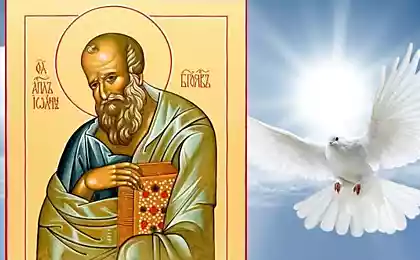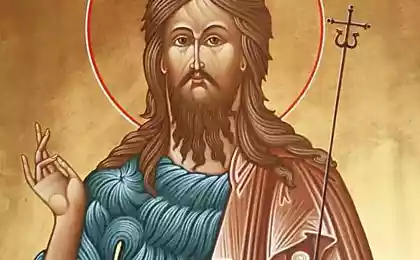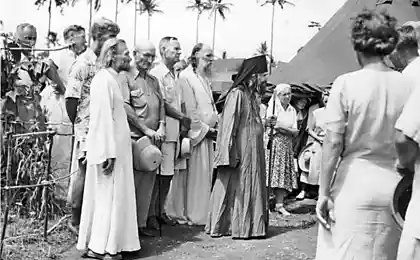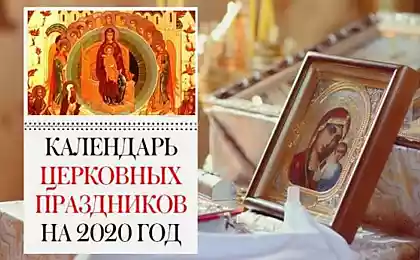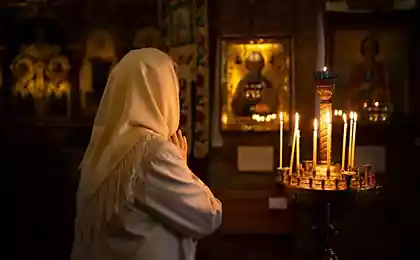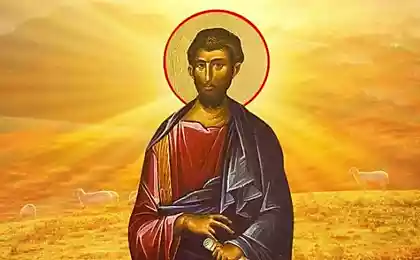179
Traditions on the Day of John the Theologian
At the end of the article – a miraculous prayer to John the Theologian. On May 21, Orthodox believers remember St. John the Theologian. In Orthodoxy, the apostle and evangelist are revered immensely, because he did much for Christ, and also wrote one of the four Gospels of the New Testament. The holiday is not among the greatest, but our ancestors always honored it, and also adhered to all traditions and prohibitions on this day.
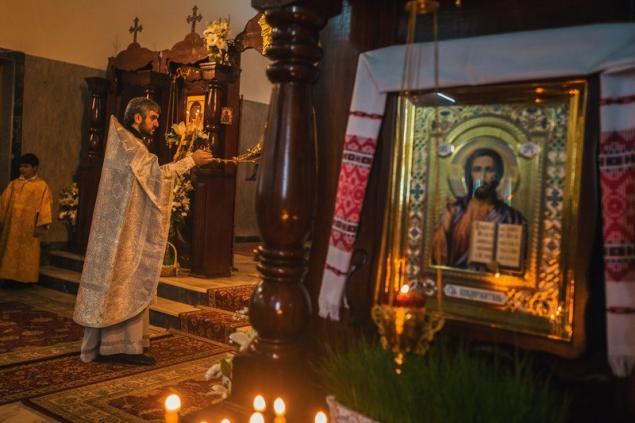
DepositPhotos
Today's edition. "Site" lively St. John the Theologian It explains why it is so important to observe all the prohibitions on this day.
The Apostle John the Theologian was the son of Zebedee and Salome, the daughter of Joseph the Betrothed. He spent his whole life serving God. Even before becoming a disciple of Jesus, he was in discipleship with John the Baptist. He became a disciple of the Savior after the Lord himself called him and his brother on Lake Genisaret. Both brothers followed Jesus, leaving their father behind.
John became one of the most beloved disciples of Christ, the Savior valued him for sacrificial love and purity. The Apostle never parted with Jesus and followed the Master on the Way of the Cross, grieving with all his heart. He alone stood beside the Savior on Calvary, not caring for his life.
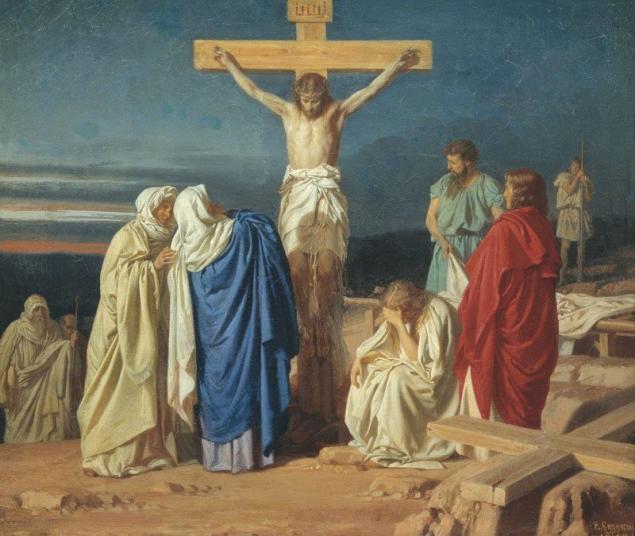
St. John wept with the Mother of God at the foot of the Cross when he heard the words of the crucified Jesus addressed to the Mother of God: “Woman, this is your son!” and then, the words addressed to John himself: “My son, this is your mother!” After that, the apostle faithfully served the Virgin until the Assumption.
Then he went to preach the word of God. He continually preached to the Gentiles about Christ, and his preaching was accompanied by many miracles. Once he resurrected the lad Domna by prayer, he healed many sick people. His words and deeds increased the number of believers every day.
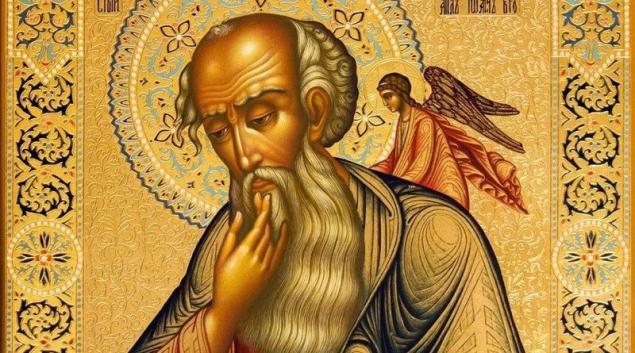
As soon as the persecution of Christians began, Saint John was called to Rome and sentenced to death, but the Lord protected him. At first they tried to poison the apostle, but the poison did not work. Then they wanted to boil John in boiling oil, but even this torture did not cause the saint harm. Realizing that attempts to kill John would not bring results, the saint was sent into exile to the island of Patmos, where he lived for many years.
The apostle continued his sermons and miracles, which attracted the inhabitants of the island. After a long exile, John was freed and returned to Ephesus, where he continued to teach Christians. It was there, presumably, in the year 95, that John the Theologian wrote the Gospel.
The apostle died at Ephesus at about the age of 105. I must say that his death was rather strange and mysterious. At the insistence of the apostle himself, seven close disciples buried him in a cross-shaped grave. But they buried him alive, not daring to violate the request of the teacher. When the tomb was opened, John’s body was not there.
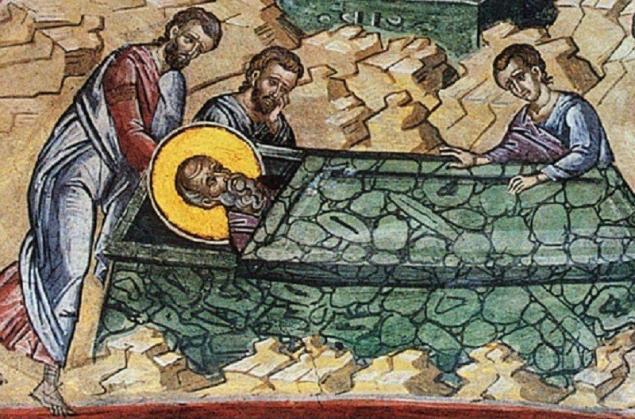
According to legend, John the Theologian was taken to heaven alive to return to earth before the second coming of the Savior. That is what is said about the life of the apostle. Today, May 21, we celebrate the day of remembrance of one of the most revered saints. Let’s figure out what to do on this day and what to refrain from.
In the first half of the day, physical labor was allowed, but in the afternoon nothing can be done. It is believed that this can bring bad weather. It was forbidden to eat onions and garlic on this day, so that all summer there were no bad dreams.
On this day, you can not cut vegetables with a knife, it is believed that then the entire crop will rot and turn black. As in any other Orthodox holiday, it is strictly forbidden to swear, quarrel and overeat. We also cannot deny help to those in need.
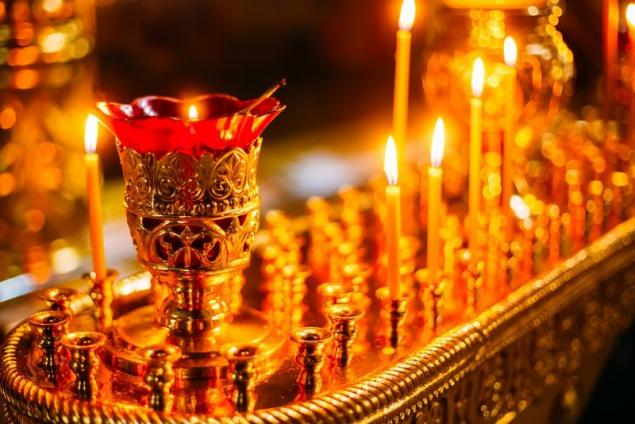
DepositPhotos
It is necessary to visit the temple and pray on this day. John the Theologian helps people who have lost faith and need support, as well as sincerely repent. John should also pray for the healing of diseases, for love and for the happiness of motherhood. This day is considered a memorial, so it is worth praying for the souls of the dead.

DepositPhotos
Prayer to John the Theologian “O great and all-powerful Apostle and Evangelist John the Theologian, confidant of Christ, our warm intercessor and quick helper in sorrows!” Pray to the Lord God to grant us the renunciation of all our sins, which have greatly sinned from our youth in all our lives by our work, word, thought and all our feelings.
At the end of our souls, help us sinners to get rid of the air torments and eternal torment, that by your gracious intercession we glorify the Father and the Son and the Holy Spirit now and ever and ever. Amen.
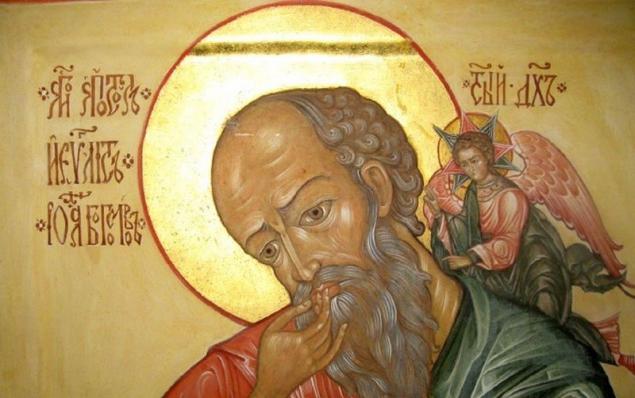
The Church calls John the Theologian the Apostle of Love, because he constantly taught that without love one cannot approach God. The whole life of the apostle is the service of love. That is why this day should be spent in love, without quarrels and offenses. Help those who need it, sincerely forgive all offenders and let love enter into your heart.
Prayer is a way to talk to God, and it’s important to know certain nuances. We recently told you how to pray properly.
The Church on this holiday welcomes any prayers, the main thing is that they are sincere. But recently we wrote about the most powerful prayer that everyone should learn by heart.
How do you celebrate this holiday at home? Share your traditions and customs with us in the comments, we are always interested to learn something new!

DepositPhotos
Today's edition. "Site" lively St. John the Theologian It explains why it is so important to observe all the prohibitions on this day.
The Apostle John the Theologian was the son of Zebedee and Salome, the daughter of Joseph the Betrothed. He spent his whole life serving God. Even before becoming a disciple of Jesus, he was in discipleship with John the Baptist. He became a disciple of the Savior after the Lord himself called him and his brother on Lake Genisaret. Both brothers followed Jesus, leaving their father behind.
John became one of the most beloved disciples of Christ, the Savior valued him for sacrificial love and purity. The Apostle never parted with Jesus and followed the Master on the Way of the Cross, grieving with all his heart. He alone stood beside the Savior on Calvary, not caring for his life.

St. John wept with the Mother of God at the foot of the Cross when he heard the words of the crucified Jesus addressed to the Mother of God: “Woman, this is your son!” and then, the words addressed to John himself: “My son, this is your mother!” After that, the apostle faithfully served the Virgin until the Assumption.
Then he went to preach the word of God. He continually preached to the Gentiles about Christ, and his preaching was accompanied by many miracles. Once he resurrected the lad Domna by prayer, he healed many sick people. His words and deeds increased the number of believers every day.

As soon as the persecution of Christians began, Saint John was called to Rome and sentenced to death, but the Lord protected him. At first they tried to poison the apostle, but the poison did not work. Then they wanted to boil John in boiling oil, but even this torture did not cause the saint harm. Realizing that attempts to kill John would not bring results, the saint was sent into exile to the island of Patmos, where he lived for many years.
The apostle continued his sermons and miracles, which attracted the inhabitants of the island. After a long exile, John was freed and returned to Ephesus, where he continued to teach Christians. It was there, presumably, in the year 95, that John the Theologian wrote the Gospel.
The apostle died at Ephesus at about the age of 105. I must say that his death was rather strange and mysterious. At the insistence of the apostle himself, seven close disciples buried him in a cross-shaped grave. But they buried him alive, not daring to violate the request of the teacher. When the tomb was opened, John’s body was not there.

According to legend, John the Theologian was taken to heaven alive to return to earth before the second coming of the Savior. That is what is said about the life of the apostle. Today, May 21, we celebrate the day of remembrance of one of the most revered saints. Let’s figure out what to do on this day and what to refrain from.
In the first half of the day, physical labor was allowed, but in the afternoon nothing can be done. It is believed that this can bring bad weather. It was forbidden to eat onions and garlic on this day, so that all summer there were no bad dreams.
On this day, you can not cut vegetables with a knife, it is believed that then the entire crop will rot and turn black. As in any other Orthodox holiday, it is strictly forbidden to swear, quarrel and overeat. We also cannot deny help to those in need.

DepositPhotos
It is necessary to visit the temple and pray on this day. John the Theologian helps people who have lost faith and need support, as well as sincerely repent. John should also pray for the healing of diseases, for love and for the happiness of motherhood. This day is considered a memorial, so it is worth praying for the souls of the dead.

DepositPhotos
Prayer to John the Theologian “O great and all-powerful Apostle and Evangelist John the Theologian, confidant of Christ, our warm intercessor and quick helper in sorrows!” Pray to the Lord God to grant us the renunciation of all our sins, which have greatly sinned from our youth in all our lives by our work, word, thought and all our feelings.
At the end of our souls, help us sinners to get rid of the air torments and eternal torment, that by your gracious intercession we glorify the Father and the Son and the Holy Spirit now and ever and ever. Amen.

The Church calls John the Theologian the Apostle of Love, because he constantly taught that without love one cannot approach God. The whole life of the apostle is the service of love. That is why this day should be spent in love, without quarrels and offenses. Help those who need it, sincerely forgive all offenders and let love enter into your heart.
Prayer is a way to talk to God, and it’s important to know certain nuances. We recently told you how to pray properly.
The Church on this holiday welcomes any prayers, the main thing is that they are sincere. But recently we wrote about the most powerful prayer that everyone should learn by heart.
How do you celebrate this holiday at home? Share your traditions and customs with us in the comments, we are always interested to learn something new!

